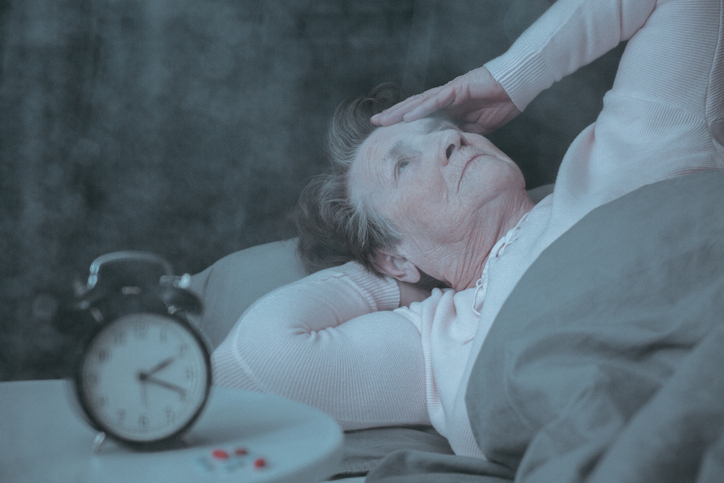When you think of dementia, what comes to mind? A lot of people tend to think of memory loss, but it is so much more than that. A common affliction affecting dementia patients is called sundown syndrome. It can also be called sundowners or sundowning. Whatever term you use, it is a serious yet common problem for dementia patients and their caregivers. As you can probably guess, this occurs in the evening and can include increased confusion, mood swings, and delusions, just to name a few. While the exact cause of sundown syndrome is unknown, it has an impact on both the patient as well as the caregiver. The memory loss that accompanies dementia is hard enough on its own. Then add in the other symptoms, such as sundown syndrome, and it can become extremely hard to cope with. Knowing how to manage sundown syndrome can benefit both caregivers and patients.
AARP states that sometimes sundown syndrome can even flip the patient’s sleep schedule. They may be awake and alert all night, while sleepy during the day. Researchers still do not know what causes this phenomena. Possibilities could include the dimming light, extreme fatigue, or even hunger and thirst. Regardless of the cause, it can be scary to watch someone sundowning.
Especially when behaviors get aggressive or anxiety and delusions are severe, watching someone sundowning can be a nightmare for caregivers and families. At the same time, there are ways you can help ease the symptoms. See if you can figure out any triggers. Does the patient have a change in caregivers in the evening? Or maybe there are too many people talking during dinner time. Observe and assess the triggers, if there are any. This is one way to minimize symptoms and distress.
Everyone benefits from maintaining routines. Yet this is extremely important for dementia patients. Disrupting routines can lead to more confusion. In turn, this may set off sundown syndrome. But what if you can’t figure out the triggers, and routines vary throughout the week? There are several ways to disrupt the cycle of sundowning. Try distracting and diverting their attention to something calming. Think of something that they enjoy. It could be their favorite television show or music. Even adjusting the lighting in the home can ease the symptoms. And if all else fails, getting medication from a physician is also an option.
Dealing with sundown syndrome takes some creativity, flexibility and most importantly, empathy. No two dementia patients are the same. Therefore, triggers as well as solutions will vary from person to person. Be prepared to try different approaches. Even a little bit of success can greatly reduce everyone’s anxiety and distress.


